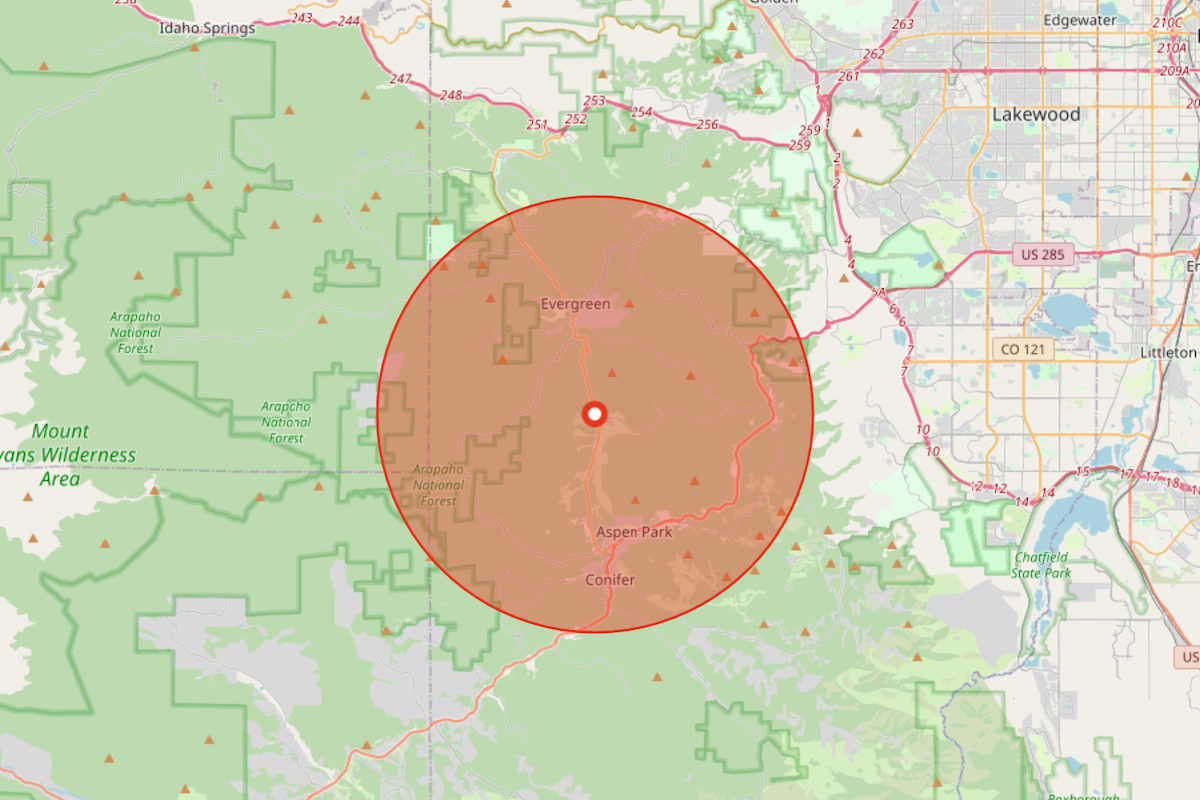Determining a Google Ads Budget for Your Montessori School

There's no doubt that Google Ads stands out as one of the most powerful tools to attract prospective parents and students. Google processes 8.5 billion searches per day... some of those are parents looking for the right program for their child. If your school is deciding whether or not to use Google Ads as part of your marketing approach, ad budget is certainly going to come into question.
So... how can you determine a good Google Ads Budget?
Well, the truth is, there are many factors at play.
What To Consider When Determining Your Budget
Determining a specific Google Ads budget for a Montessori school depends on various factors such as the school's location, competition, target audience, and marketing goals. However, here are some general guidelines to help you establish a good Google Ads budget:
Consider Your Marketing Goals
Before allocating a budget for your campaigns, you should clearly define their advertising objectives and goals. Are they aiming to Increase enrollment, raise awareness or promote a specific program? Establishing these objectives will help align the budget with the desired outcomes.
For instance, if the primary goal is to boost enrollment, a larger budget may be necessary to drive more traffic and generate leads. On the other hand, if the focus is on increasing awareness or promoting one specific program, a smaller budget with targeted campaigns might be more effective.
Evaluate Your Competition
Research and analyze the advertising landscape in your area. If you have many competing Montessori schools or other educational institutions using Google Ads, you may need a larger budget to stay competitive. Google relies heavily on bidding, so the more competitive your area is, the larger your ad budget will need to be.
Here are some tips to help you assess your competition on Google Ads:
- Number of Competitors: How many competitors are in your area? Do some research on other schools, Montessori programs, and daycares in your are to see how saturated the local market is. The more competitive the landscape, the higher your ad budget will need to be.
- Number of Keywords: The competitiveness of keywords plays a significant role in determining the cost. Highly competitive keywords with high search volumes often have higher costs per click (CPC) because many advertisers are bidding for them. If you target a large number of competitive keywords, it can increase your overall budget.
- Learn from their strengths and weaknesses: Identify your competitors' strengths and weaknesses based on your analysis. This knowledge can help you identify opportunities for differentiation and develop unique selling points for your Montessori school. When you have a better idea of your own strengths, you can focus on running higher quality campaigns and getting more out of your advertisement investment.
Understand The Google Ads Auction System
To make informed budget decisions, Montessori schools should familiarize themselves with how the Google Ads auction system works. Advertisers compete for ad placement based on keyword relevance, ad quality, and bid amount. Understanding this process allows schools to estimate the cost per click (CPC) and estimate the number of clicks they can achieve with a given budget. By monitoring campaign performance and adjusting bids, schools can optimize their budget allocation to maximize the return on investment (ROI).
Google Ads offers various bidding strategies to help you achieve your advertising goals. Different bidding strategies will have different budgets, so it's important to be realistic about what your school can spend per month and select a bidding strategy that fits within your allocated budget. Your ad budget will dictate what kind of bidding strategy is appropriate for your school.
Here's a list of bidding strategies from potentially most expensive to least expensive:
-
Target ROAS (Return on Advertising Spend): This strategy aims to maximize conversion value while achieving a specific target return on ad spend. It can be more expensive as it focuses on generating higher-value conversions.
-
Maximize Conversions: This strategy is designed to get the maximum number of conversions within a given budget. It can be more expensive as it prioritizes driving conversions without necessarily considering their value.
-
Enhanced Cost Per Click (ECPC): With ECPC, Google automatically adjusts your manual bids to increase conversions. It can be moderately priced as it optimizes bids based on the likelihood of conversion.
-
Target CPA (Cost Per Acquisition): This strategy focuses on acquiring conversions at a specific target cost per acquisition. It can be moderately priced, aiming to achieve the desired cost per conversion.
-
Manual CPC (Cost Per Click): In this strategy, you set bids manually for each keyword or placement. It offers more control over costs, but the effectiveness depends on how well you manage and optimize your bids.
-
Target Impression Share: This strategy aims to maximize your ad's visibility by targeting a specific impression share percentage. It may be less expensive if the competition is low, but costs can increase if targeting a high impression share.
-
Maximizing Clicks: This strategy focuses on driving the maximum number of clicks within a given budget. It may be relatively less expensive, but the quality and relevance of the clicks should be monitored.
It's important to note that the effectiveness and cost efficiency of these bidding strategies can vary depending on factors such as your campaign goals, industry, competition (what other schools and childcare programs are in your area), and the quality of your ads and landing pages. Testing and monitoring performance are crucial to determining the most suitable and cost-effective bidding strategy for your school's specific needs.

Assess Your Target Audience:
Consider the size of your target audience and their online behavior. How niche is your school? If you're targeting a specific locality or demographic, you may need a smaller budget compared to a school targeting a broader audience. Take the time to fully understand your idea, mission aligned prospective family. This should help you target more effectively and get more out of your budget. Here are a few demographics and psychographics to help you get started:
- Age
- Location
- Income Level
- Education Level
- Parenting Stage
- Interests and Hobbies
- Language
- Family Size
- Occupation
- Parenting Values
- Keyword Volume
Calculate your cost per click (CPC):
Use tools like the Google Keyword Planner to estimate the average cost per click for your targeted keywords. Multiply this figure by the number of clicks you aim to generate to get an idea of the budget required. For example, if your average CPC is $2 and you want to generate 500 clicks per month, your budget estimate would be $2 x 500 = $1,000 per month. By selecting a mix of high-volume and long-tail keywords, schools can optimize their ad visibility within their budgetary constraints.
Consider Geographic Targeting
Most likely you are aiming to reach parents in your local area, so it's important to consider geographic targeting when determining a Google Ads budget. By focusing your ad campaigns on specific locations, your Montessori school can reach parents within its target market more effectively and avoid wasting budget on irrelevant clicks. When you use location targeting options in Google Ads, you can define specific regions, cities, or even radius targeting to ensure their ads are shown to the right audience.
Start With A Test Budget
If you're unsure about the ideal budget, consider starting with a smaller budget as a test run. Monitor the performance of your campaigns and make adjustments accordingly. Experimentation is key to refining Google Ads campaigns and finding your optimal ad budget. Montessori schools can test different ad formats, copy variations, landing pages, or bidding strategies to identify what works best for their target audience.
By allocating a portion of the budget for testing purposes, schools can gather valuable insights and refine their future campaigns, ultimately improving ROI and conversion rates. If you decide to make changes to your budget through the testing process, gradually increase or decrease the budget as you gain more insights. You should always aim to make changes to your ad budget incrementally in order to give Google an opportunity to learn more about your campaign and maximize your budget.
Rapidly increasing or decreasing your budget can disrupt the stability of your campaigns. The algorithms that optimize your ads need time to adapt and optimize based on the new budget. Sudden changes can disrupt the learning process and cause fluctuations in performance. It's important to keep this in mind throughout the testing process!

Monitor And Optimize Performance:
Continuously monitor the performance of your campaigns, track key metrics such as click-through rates (CTR), conversion rates, cost per acquisition (CPA), (CPC), cost per click and (CPM), cost per mile. . Allocate budget to the campaigns that yield the best results and adjust or pause underperforming campaigns. If you want to run campaigns that give you a good return on your investment, then you will need to be constantly monitoring them to make sure they are performing well... otherwise, you could just be throwing your money away.
Remember, there is no one-size-fits-all answer to what constitutes a "good" Google Ads budget for a Montessori school. It's essential to regularly assess and adjust your budget based on the specific needs and outcomes of your advertising campaigns and to make changes gradually.
Did all this information overwhelm you?
We won't lie, running Google Ads campaigns that are optimized require a lot of time and testing, so perhaps a Google Ads management service might be the right option for your Montessori school... and that's exactly what we do!
When you work with Nido Marketing, you benefit from our expertise of running ads just for Montessori schools. We have years of experience creating and managing Google ads for Montessori schools just like yours. Our team is dedicated to optimizing your ad budget to result in more relevant clicks for your school. We will manage your Google ads so you can connect with parents who want to connect with you as well.
Schedule a FREE Consultation Call with a Montessori Marketing Expert


0 comments
Leave a comment